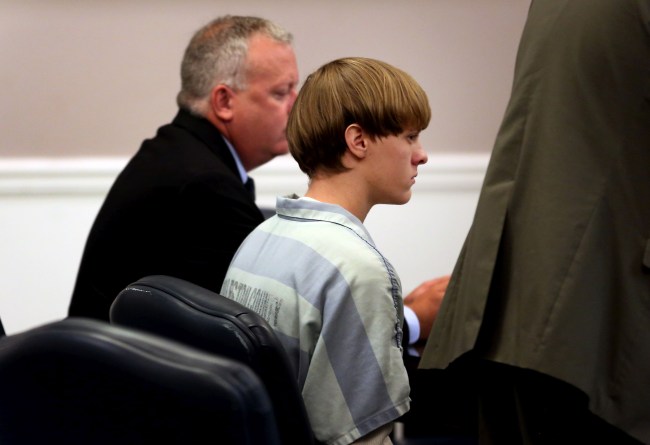
Grace Beahm-Pool/Getty Images
In June of 2015, 21-year-old Dylann Roof ambushed a prayer service at Charleston, South Carolina’s Emanuel African Methodist Episcopal Church and murdered nine black people, with hopes of igniting a race war.
In December 2016, Roof was convicted of all 33 federal hate crime charges against him to a jury of nine white and three black jurors.
Now, the court will decide if the mass murderer lives or dies. During the sentencing phase of his trial in Federal District Court, Roof (who is representing himself), didn’t do himself any favors by constantly assuring the jury that he is not mentally ill, saying “there’s nothing wrong with me psychologically.”
What’s more disturbing are excerpts from the journal Roof kept following his arrest that was seized in August of 2015. The following was read aloud by the prosecution on Wednesday morning.
Via The New York Times,
“I would like to make it crystal clear I do not regret what I did,” Mr. Roof wrote in the journal, which officials seized in August 2015 and a prosecutor introduced during his opening statement. “I am not sorry.”
Mr. Roof, who was then 21, also wrote: “I do feel sorry for the innocent white children forced to live in this sick country and I do feel sorry for the innocent white people that are killed daily at the hands of the lower race. I have shed a tear of self-pity for myself. I feel pity that I had to do what I did in the first place. I feel pity that I had to give up my life because of a situation that should never have existed.”
The sentencing phase is expected to bleed into next week, when hopefully we’ll never have to hear from or about this low life ever again.